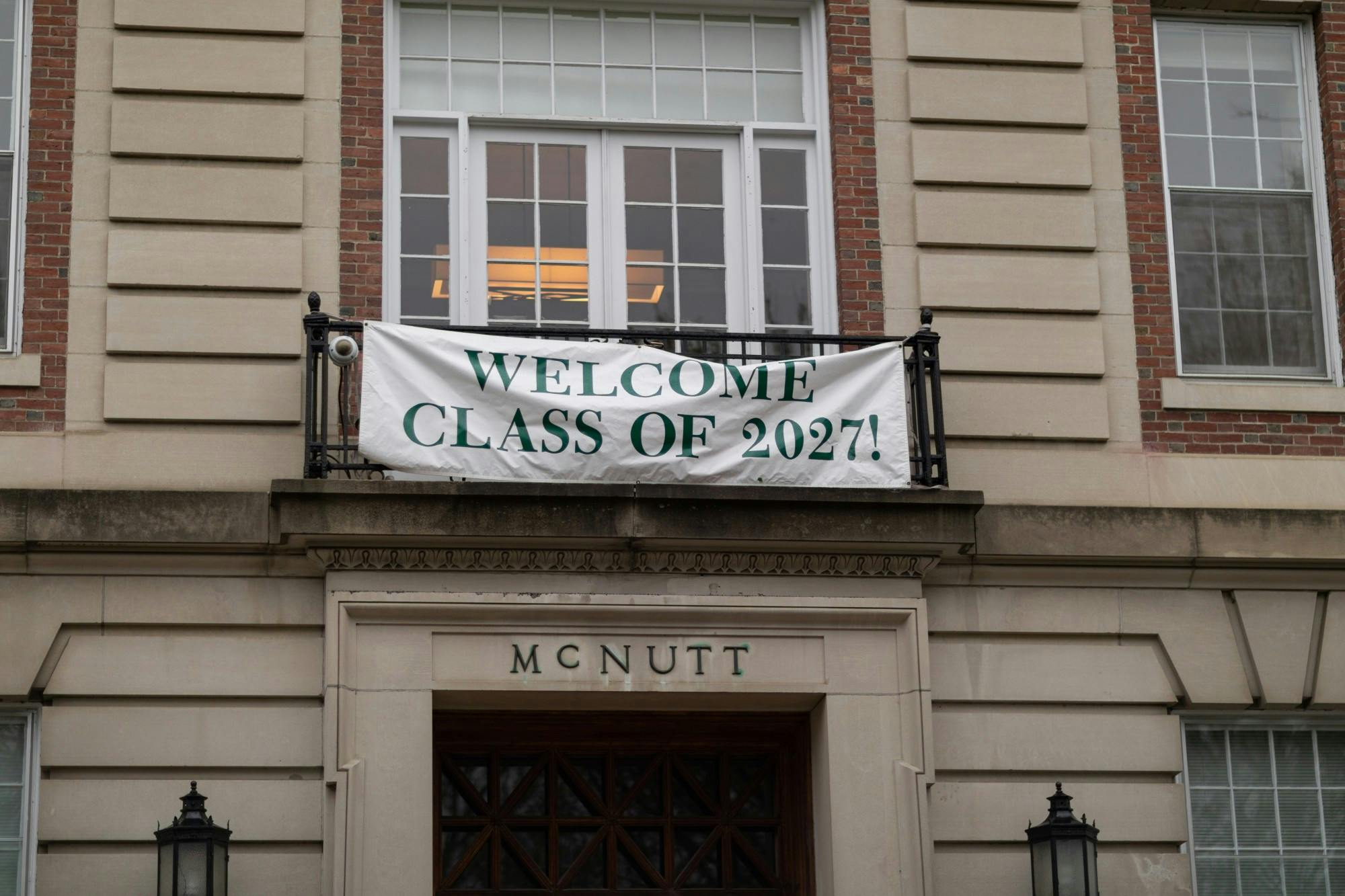Every fall, a new group of eager minds floods Dartmouth’s historic campus. Along with suitcases filled with clothes and dorm bedding, these first-years carry ambitions, dreams and perhaps a heaping dose of nerves. There to guide them on their journey are Orientation Leaders or “OLs”: a select group of upperclassmen ready to ease concerns, foster connections and offer a helping hand along the way. They serve as the grounding force that allows first-years to acclimate to the College environment.
But don’t let their composure fool you. Beneath their pleasant greetings and silly icebreakers, OLs are typically as excited and nervous as the first-years they mentor, according to senior OL Rosario Rosales ’25. On top of meeting hundreds of students a day, they are also responsible for adapting to an ever-evolving two week itinerary. A typical day might include facilitating community building exercises, leading tours and serving on academic panels, senior OL Anthony Fosu ’25 said.
And behind this year’s group of 33 dedicated OLs, five senior OLs: Fosu, Emma Johnson ’24, Jordan Mann ’25, Cady Rancourt ’24 and Rosales — have invested not weeks, but months into preparing for this momentous marathon.
Rancourt explained that the senior OL team was created this year to bring more student perspectives into the planning process and address feedback from both ’26s and last year’s OLs, many of whom mentioned that last year’s schedule was too busy.
“I thought last year’s Orientation was a great experience, but there were also times where I was really overwhelmed,” Rosales said. “It affected the way I wanted to approach my mentorship, so I wanted to advocate for the wellbeing of OLs this year.”
To alleviate some of the pressure placed on OLs, the senior OL team helped create a new schedule, which grouped OLs into groups of seven to eight. Under the guidance of a senior OL, teams would rotate which activities they facilitated that day for freshmen, which included social activities such as s’mores, karaoke, bingo, scavenger hunts, and group lunches with OLs. This allowed each group to have staggered breaks — and some to have full days off to recharge.
Despite these successful readjustments, Mann emphasized that there is always room for growth.
This year, Mann explained that both the Collis Kickoff and the Twilight Ceremony faced last minute adjustments due to heavy rain. “We can’t predict what will fall into place because they’re being coordinated by other people, and [OLs] provide support,” he said
However, Mann said he believes that the team-based format has allowed for better collective communication, which makes adapting to these changes less stressful.
The team also organized a “Knowledge Bank” of information meant to improve the quality of mentorship offered to first-years and lessen anxiety for mentors when first-years have questions that they can’t answer, according to Mann. The Knowledge Bank is a list of activities, affinity groups, clubs and identities that ’27s may want to discuss with upperclassmen, Mann explained. OLs added their names to topics which they could confidently provide information on, and then the OLs used the list to connect ’27s with upperclassmen in communities of interest to them, Mann said.
To support the wellbeing of ’27s, the schedule for first-years was also reduced this year, Rancourt said. More activities were made optional or redesigned to encourage more socialization. Two notable activities influenced by senior OLs were “Show and Tag” and “Crafting Connections.” During Show and Tag ,’27s designed name tags by exchanging stickers that displayed their interests, pronouns and unique identities. Crafting Connections invited students to set intentions for their upcoming academic year and express their intentions using a meaningful phrase or word. Students would then exchange letter beads to craft their own intention bracelets.
“Having focus sessions that are meaningful, and which allow you to to take home something you made to remember it by, is important,” Mann said.
Such keepsakes may encourage students to later reflect on their time in Orientation and reconnect with the intentions they set. Interactive activities were especially important to the OLs in the Class of 2024, as their Orientation experience was severely limited due to COVID-19.
“Our Orientation was a canvas module, and we were introduced to a campus in a frozen state,” Fosu said, which was “disappointing.” He added that the isolation he felt during his freshman fall encouraged him to become an OL. “It made me realize how much I needed mentorship, and how I wanted to be there for future classes who would have their own struggles to navigate.”
Other senior OLs also noted the long lasting impact of COVID-19, and they emphasized the importance of rebuilding a sustainable OL structure. To Fosu, that process entails equipping first-years with the information they need to be successful and become future mentors.
“It also involves passing on institutional memory,” he said. “Because the entire student body changes so often, and faculty and admin will continue to change, Dartmouth is never going to be the same for long. The senior OL team can help us preserve central aspects of the Orientation program.”




